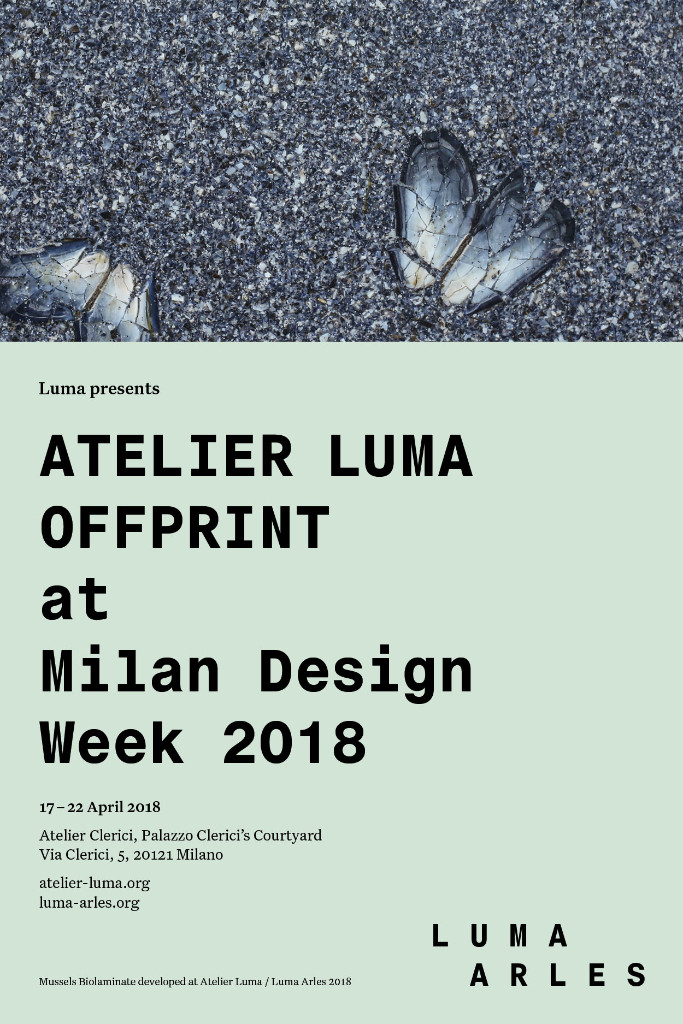
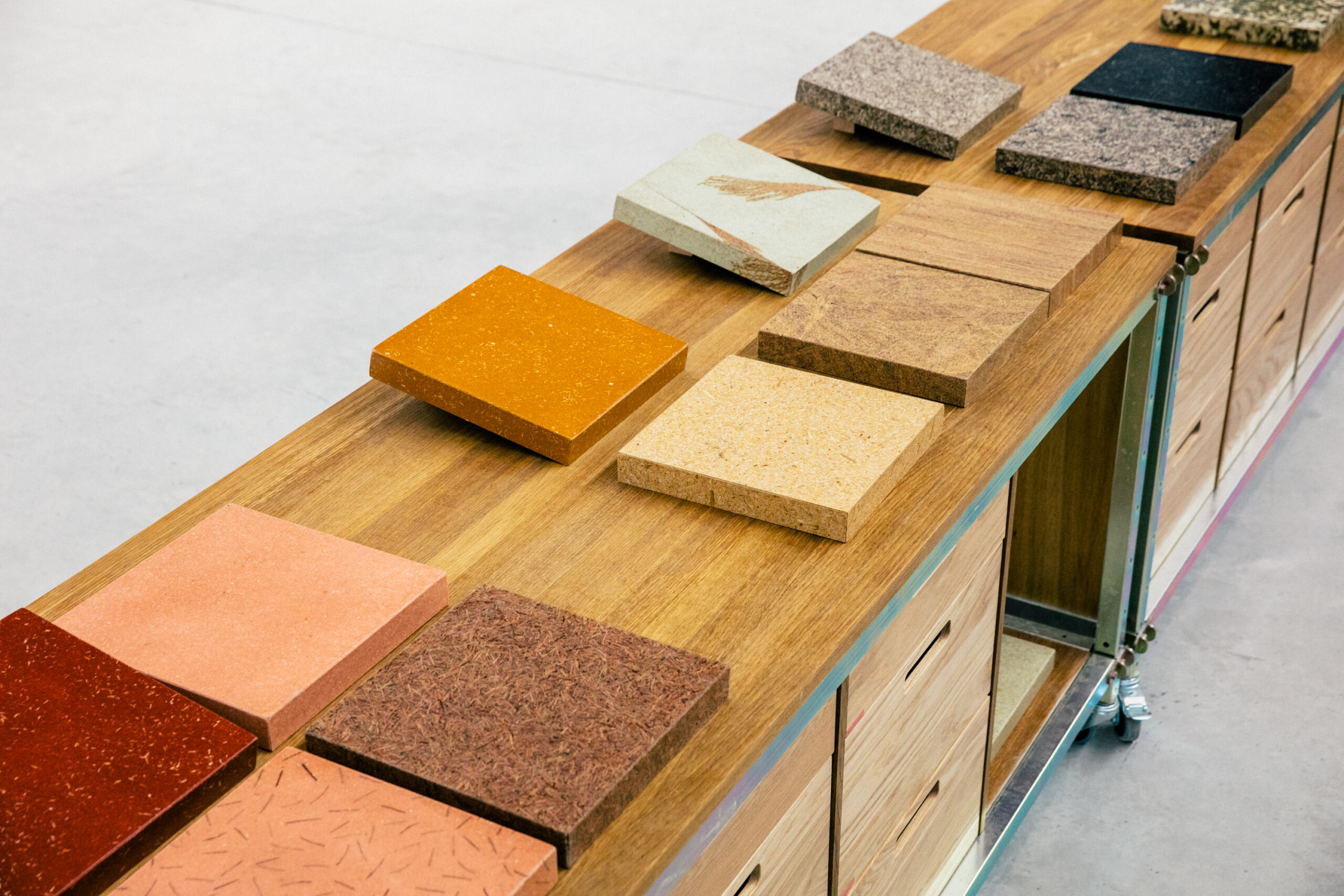
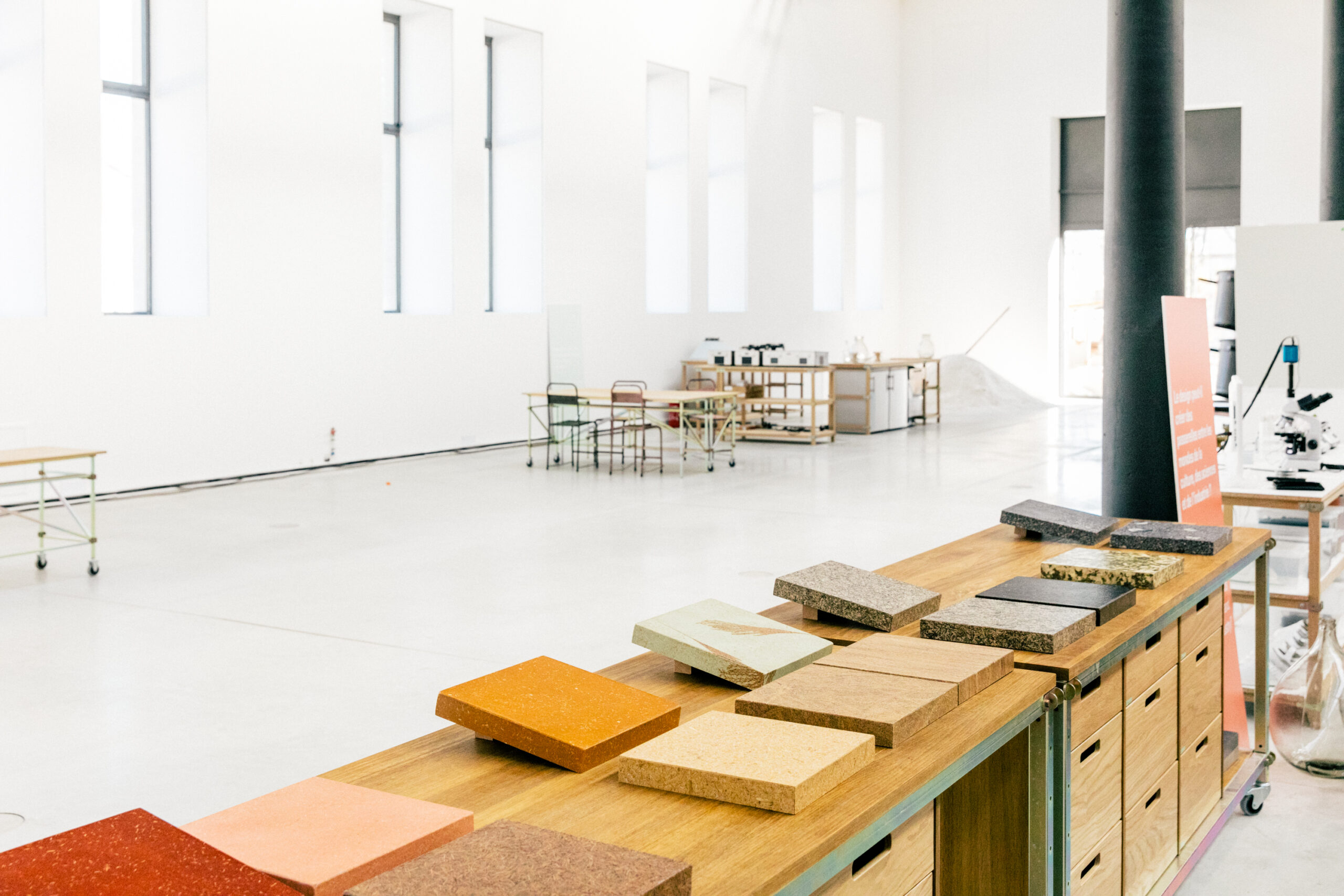

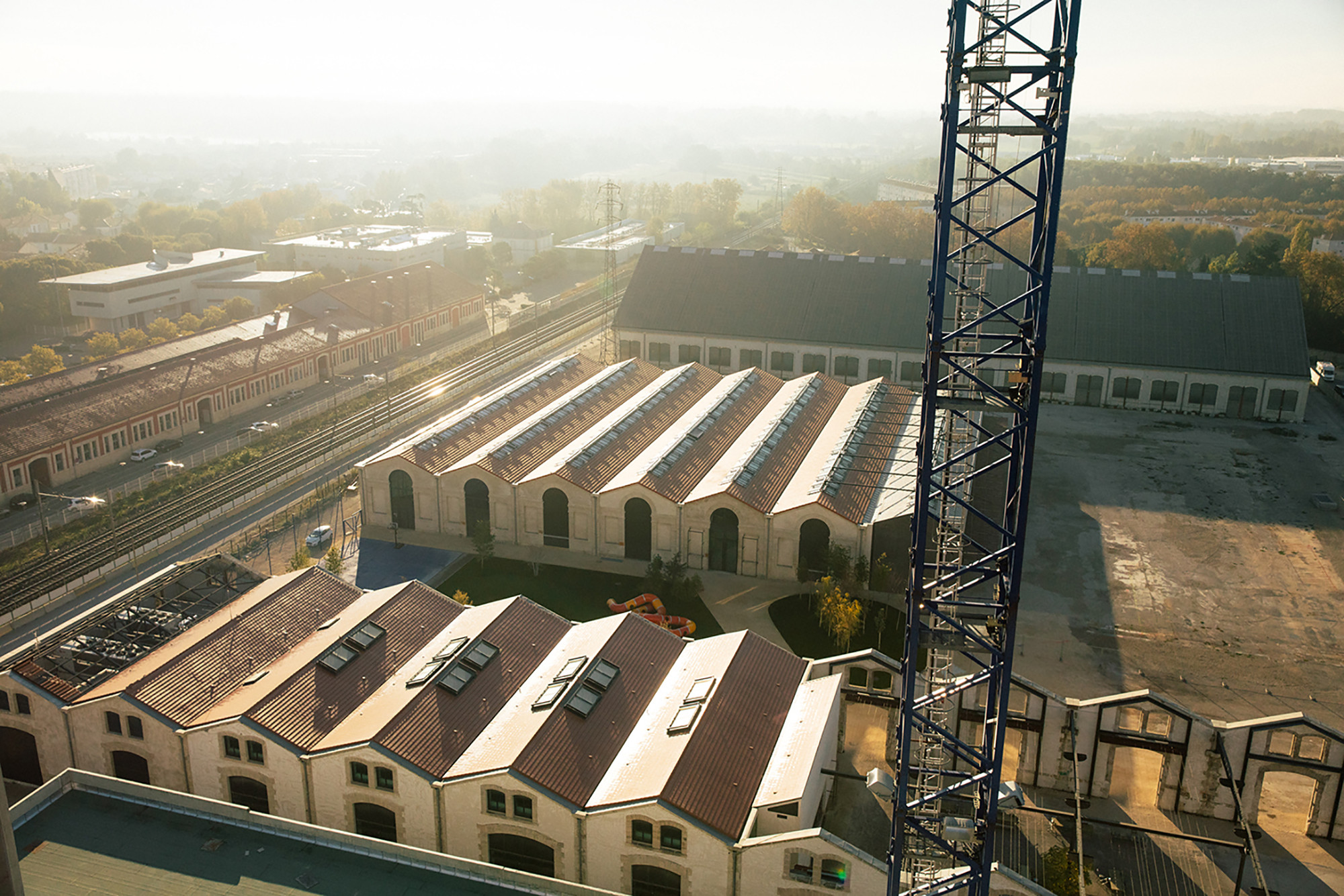
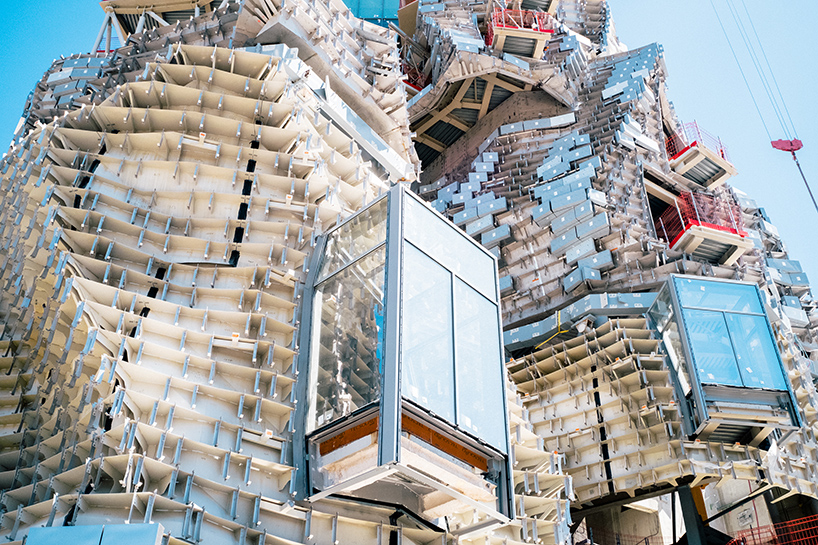
The rice agricultural waste generated in the Camargue region (15 000 tons every each) was the starting point of our explorations. Making use of the full waste stream, the initial stage of this project has been processing rice fibres to create high-quality bio-laminates. Ever since, a plurality of agricultural resources such as algae, canne de Provence, reed, pine needles and mussel shells, have been recycled into bio-laminates.
Following a unique interpretation of natural fibres – in terms of artistry, economics and technology – atelier LUMA sets up a pilot installation for gathering, sorting and transforming various natural fibres from local natural, agricultural and domestic sources.
A first series of Bio-laminates has already been produced and research continues with the Colour Geographies project. Taking the aesthetic appearance of the materials into great consideration, our designers successfully incorporated pigments from Luberon’s ochre quarries to the laminates.
The local production of these new bio-laminates with Camargue colours can generate new options for the local industry.